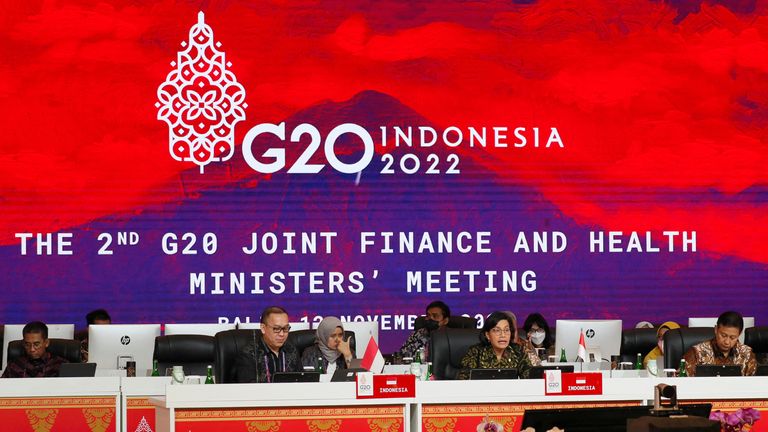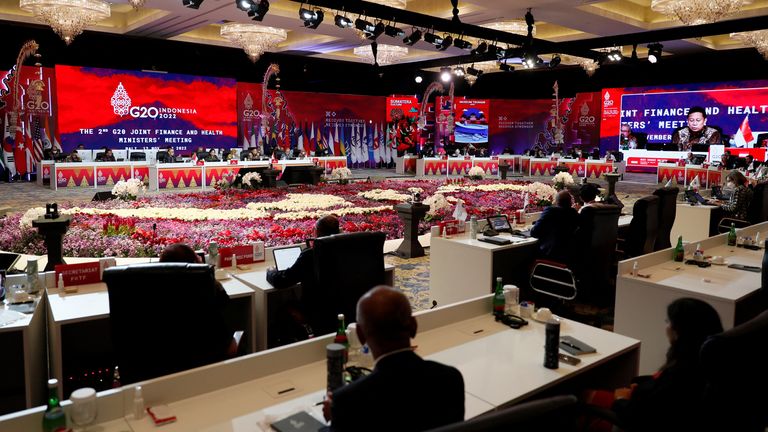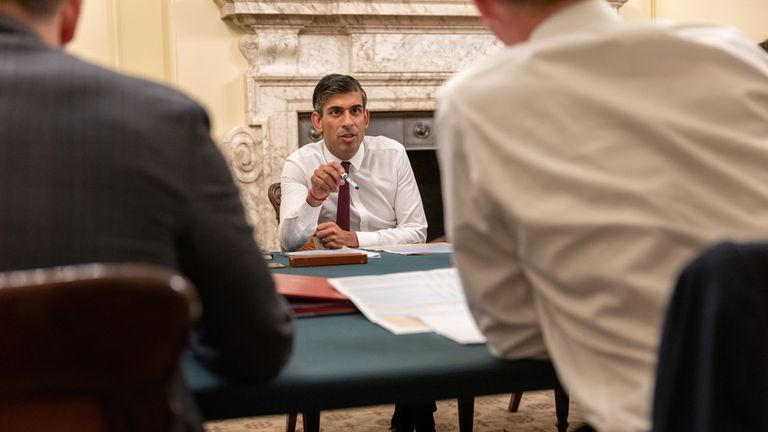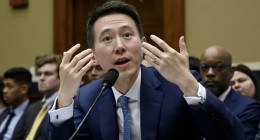Rishi Sunak will this week kick off his premiership for real, with an international summit in Indonesia that will give a taster of his approach to foreign policy and an economic statement back in London that will define the early months of his government – for good or ill.
On Monday, Mr Sunak will arrive at the G20 summit in Indonesia, where the new PM will impress upon fellow world leaders his style and his policy priorities.
On style, Mr Sunak has signalled a change in approach. Gone is the combative, sometimes abrasive approach of Boris Johnson and Liz Truss – you might remember when she joked that the “jury was out” on whether French President Emmanuel Macron was a friend or foe – in favour of a more cordial and collaborative approach.
The prime minister made a point of calling President Macron a friend and seeking a bilateral summit with him at COP27 in Egypt last week in a meeting that was described as “very warm”.
Ask his team, and the focus for the prime minister will be to “call out Putin’s regime” while working with allies on global economic challenges.
But beyond “cementing relationships” with allies, what’s Mr Sunak’s vision for Britain’s foreign policy?
While Mr Johnson and Ms Truss had both been foreign secretaries before becoming prime minister, Mr Sunak has only ever politically focused on the domestic brief. What he thinks about foreign policy and Britain’s place in the world is not something this politician has ever been asked to flesh out, why would he? His main job in government before taking the top seat was dealing with the government’s economic response to the COVID crisis.
So it follows that the PM will try to flex economic credentials as a route into foreign policy, as leading nations grapple with spiking energy prices and inflation triggered in part by the war in Ukraine.
There is a model for this approach: remember how Gordon Brown used his experience as chancellor on the global stage at the G20 summit in 2009 in London to agree a package of aid for the world economy.
Call for ‘decisive action’
Mr Sunak is untested and relatively inexperienced – he was chancellor for just two years – but he at least has a level of fiscal credibility to contribute to discussions.
But Mr Sunak will have an eye on events in London as his chancellor puts the finishing touches on this autumn statement. His team have been keen to highlight the direct link between the global economy and the challenges back home.
One No 10 official says the new PM will use the G20 to talk about “economic vision with partners, calling for coordinated and decisive action to address the current difficulties which will ultimately benefit the people of the UK”.
This summit is, in a way, a good opportunity for the prime minister to try to lay some of his own economic woes – exacerbated by Ms Truss’s disastrous mini-budget – at the feet of President Putin.
‘It’s going to be very, very tricky’
But his team are in no doubt that the autumn statement next Thursday could be the moment where it gets very bumpy for Mr Sunak as he lays bare the scale of the economic challenge and the extent of tax rises and spending cuts coming our way.
Estimates put the UK’s budgetary hole at around £55bn which Chancellor Jeremy Hunt will look to fill through a combination of squeezing government spending and raising taxes.
This is going to be very difficult territory for Mr Sunak and his chancellor. The prime minister is already deeply unpopular with a chunk of his party for taking the UK’s tax burden to a 70-year high, and this is an attack line which mortally wounded Mr Sunak in the July leadership race.
Further tax rises could whip up the simmering resentment in the party for him and his programme, while the spending squeeze risks further agitating a very disillusioned public.
“It’s going to be very, very tricky,” is how one key ally put it to me this week. “It’s got to be seen as fair [in terms of sharing the burden] and the hope is that it will be received neutrally.”
This will be a huge week for an untested prime minister in which we’ll get a better taster of how he’ll be received abroad as well as how he intends to lead at home. A lot rides on the seven days.









